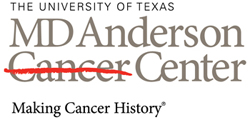Seattle Genetics announce fast track approval of Adcetris
This morning, Seattle Genetics announced that the expected fast track approval from the FDA has been forthcoming for brentuximab vedotin (Adcetris) following the recent unanimous ODAC voting in both refractory Hodgkin Lymphoma (HL) and Anaplastic Large Cell Lymphoma (ALCL). Clearly, the company and the agency have come to agreement on the confirmatory trials as part of the condition of accelerated review. The final prescribing information (PI) can be found on the Adcetris website.
For those of you looking for more information on Adcetris, please check out the related posts section below for previous reports on this novel ADC therapy.
I missed the conference call this morning announcing the pricing details, but Luke Timmerman from Xconomy had a nice summary:
“The company set the price at $13,500 per dose, given intravenously every three weeks. If patients get eight infusions on average, consistent with clinical trial experience, then it will cost $108,000 per patient.”
Based on the data from the clinical trials, most patients will probably need 7-9 cycles, so this would make the overall course in the $94,500 – $121,500 per treatment range, with $108K being the average based on 8 cycles. The overall treatment cost will therefore typically be less than the $120K cost of treatment for BMS’s ipilimumab (Yervoy) in metastatic melanoma.
Ever since Dendreon announced the $93K course of treatment for Provenge in asymptomatic castrate resistant prostate cancer (CRPC), there has been a noticeable trend upwards in the cost of treating advanced cancers. We probably spend more treating the last 6 months of a cancer patients life than any of the other stages combined with incremental rather than dramatic improvements. In the long run, this is likely to be unsustainable, but for now companies will continue to charge what they think the market will bear.
The good news is that Adcetris offers excellent clinical proof of concept for antibody drug conjugate (ADC) technology and has the distinction of being the first such agent approved, beating Roche’s T-DM1 to market, which has been filed with the FDA for the treatment of HER-2 breast cancer.
In the meantime, we also have several other novel therapies awaiting final review by the FDA. Aside from T-DM1, Pfizer filed crizotinib for ALK-positive lung cancer and now has a brand name, Xalkori, which I thought sounded rather Vulcan :). Should these two agents also receive FDA approval in the very near future, 2011 will likely be a bumper year for new cancer drug approvals.

 Dr Younes is very active in social media on
Dr Younes is very active in social media on